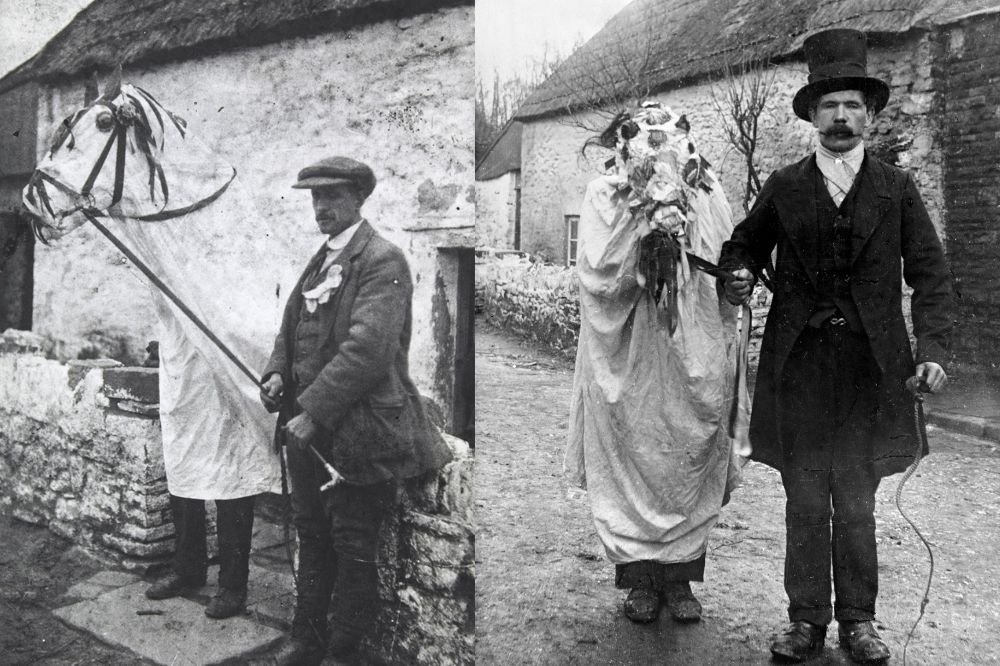Watch: Incredible black and white Mari Lwyd video from the BBC Cymru archives

Stephen Price
Move over Mary, it’s Mari season now if the growing number of revived wassailing events and trending online chatter are an indication of who owns the throne this Christmas.
Mari Lwyd, our grey mare (or Blessed Mary – the debate rages on) even made an appearance in the first episode of the new series of Doctor Who and was mentioned in a recent episode of Mastermind.
She needs little introduction nowadays.
Mari Lwyd, the mysterious and menacing cloaked horse, is perhaps one of our most spectacular winter traditions. Her ghostly skull and white robes, baubles for eyes and a mane of translucent colours prove an unsettling, almost nightmarish sight.
Something stirs inside when you encounter Y Fari. She is other.
Traditionally, groups of men would accompany Mari from door to door around their local towns or villages, singing to request entry, with the inhabitants of the chosen house taking over the next verse. A battle of rhyme between the two parties would ensue until ideas ran dry and admittance was granted
Customs
Although considered South Walian in origin, Y Fari was first recorded in a book called A Tour Through North Wales by J Evans in 1800.
It is perhaps surprising that, after a period of relative obscurity from the mid-20th century onwards, our beloved Mari has experienced an unexpected renaissance over the past decade or so
Customs vary, but Lady Llanover’s (which has recently been revived to great success) took place on the twelfth night – the last night of the Twelve Days of Christmas. Others (similarly dated) on around Hen Galan – Wales’ new year celebrations based on the old Julian calendar.
So she’s perhaps in town much earlier nowadays but that’s only in keeping with how Christmas is played in general.
Resurfaced video
Like Mari Lwyd herself, a delightful video from the BBC archives resurfaces annually as Christmas approaches, so we thought we’d share it here in all its glory.
The video was filmed in Llangynwyd, Glamorgan (a village between Maesteg and Bridgend) and featured on a programme called Lolfa in 1966.
Some words from the pwnco, or rhyming battle that might help you – you’re on your own with the rest though:
Wel dyma ni’n dwad (Well here we come)
Gy-feillion di-niwad (Innocent friends)
I ofyn am gennad (To ask leave)
I ofyn am gennad (To ask leave)
I ofyn am gennad i ganu (To ask leave to sing)
Support our Nation today
For the price of a cup of coffee a month you can help us create an independent, not-for-profit, national news service for the people of Wales, by the people of Wales.





